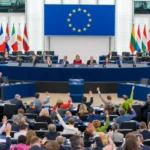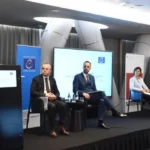It was at the beginning of June. Highly awaited by the Ukrainians, German Leopard 2 tanks launched an attack on the Surovikin line, named after this Russian general who, since the fall of 2022, has been fortifying the southern front in the Zaporizhia region, where the A major Ukrainian counter-offensive was expected, intended to cut the territory conquered by the Russians in two by advancing to the Sea of Azov, and to isolate Crimea. The Ukrainians had to advance 150 kilometers deep inside the Russian system. But almost five months later, the advance of the Ukrainians at two points on this front does not exceed 15 kilometers: the most symbolic victory was the capture of the village of Robotyne, 300 inhabitants before the war…
The towns of Tokmak and Melitopol are still in Russian hands. And the latter have regained the initiative, particularly in the Donetsk region, where they are pressing on the town of Avdiivka, which they are seeking to encircle. General Zalouzhny, commander of the Ukrainian forces, was forced to recognize at the beginning of November that they were in an “impasse”, even if he specified that the Russians too. There is a lack of men, equipment and new tactics to take into account the new technologies which are profoundly restructuring combat. But a few F-16 fighters in a year will not change the situation on the ground, nor will a few additional cruise missiles.
In video, and supporting maps, Le Figaro looks back on this Ukrainian counter-offensive in the summer of 2023, which ended in failure. Why is this so? And what are the prospects now for the two belligerents, as Western aid dries up against a backdrop of political tensions in the United States and war between Israel and Hamas in the Middle East?
This article is originally published on lefigaro.fr






